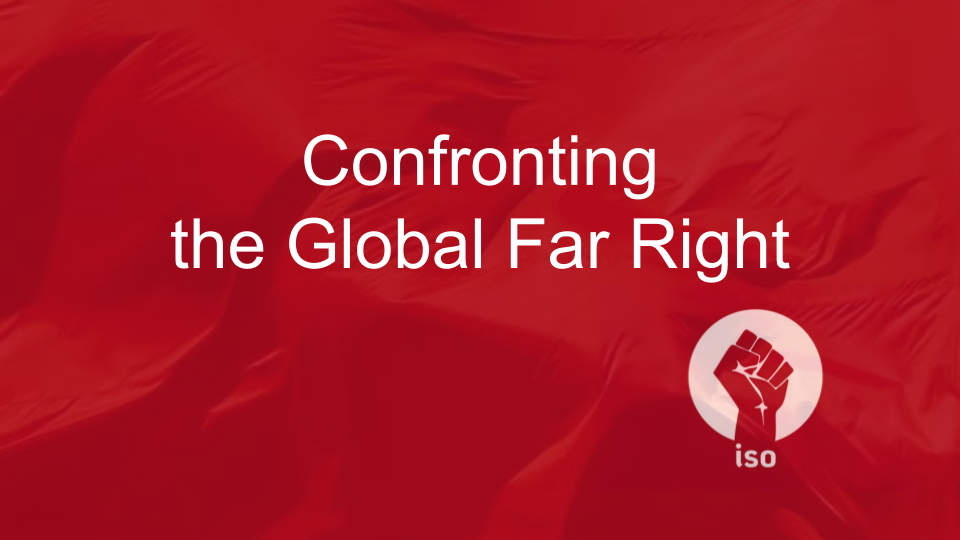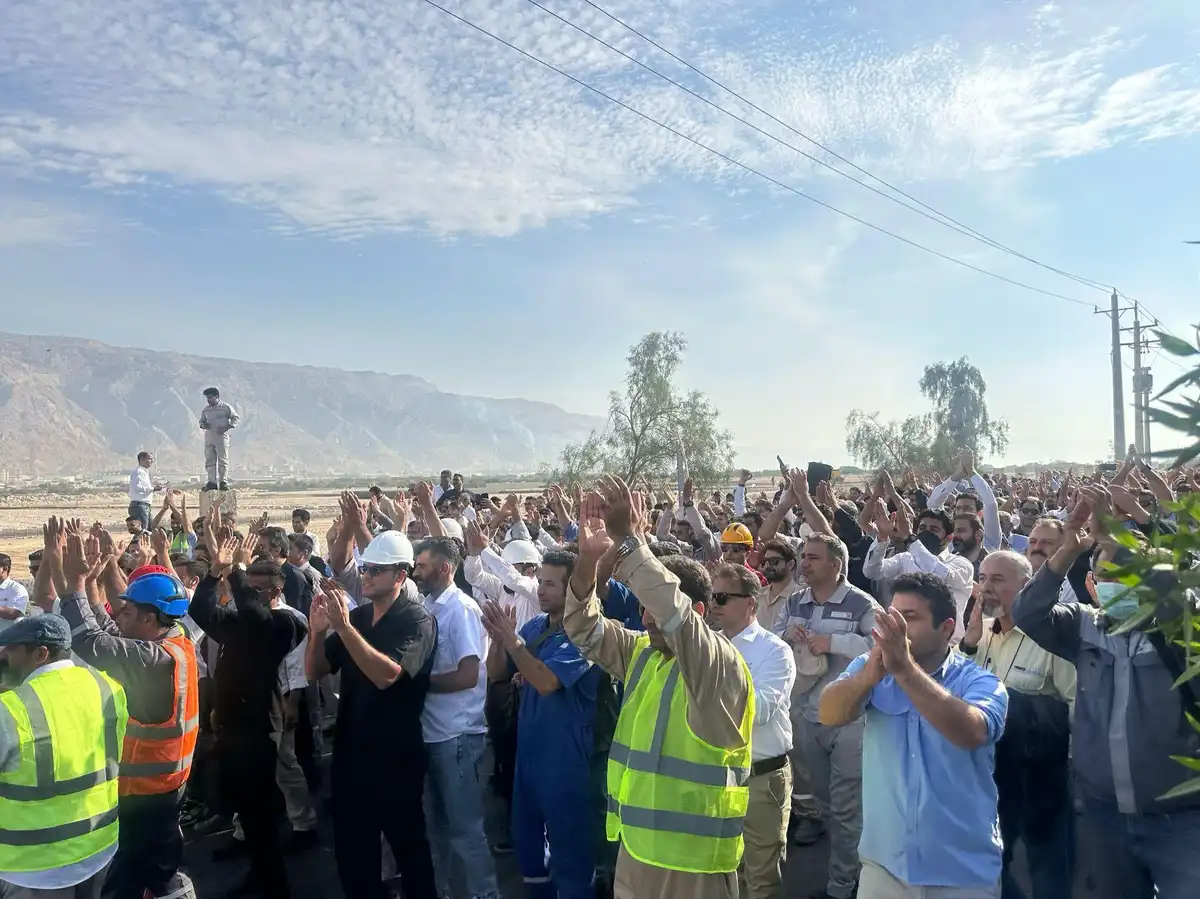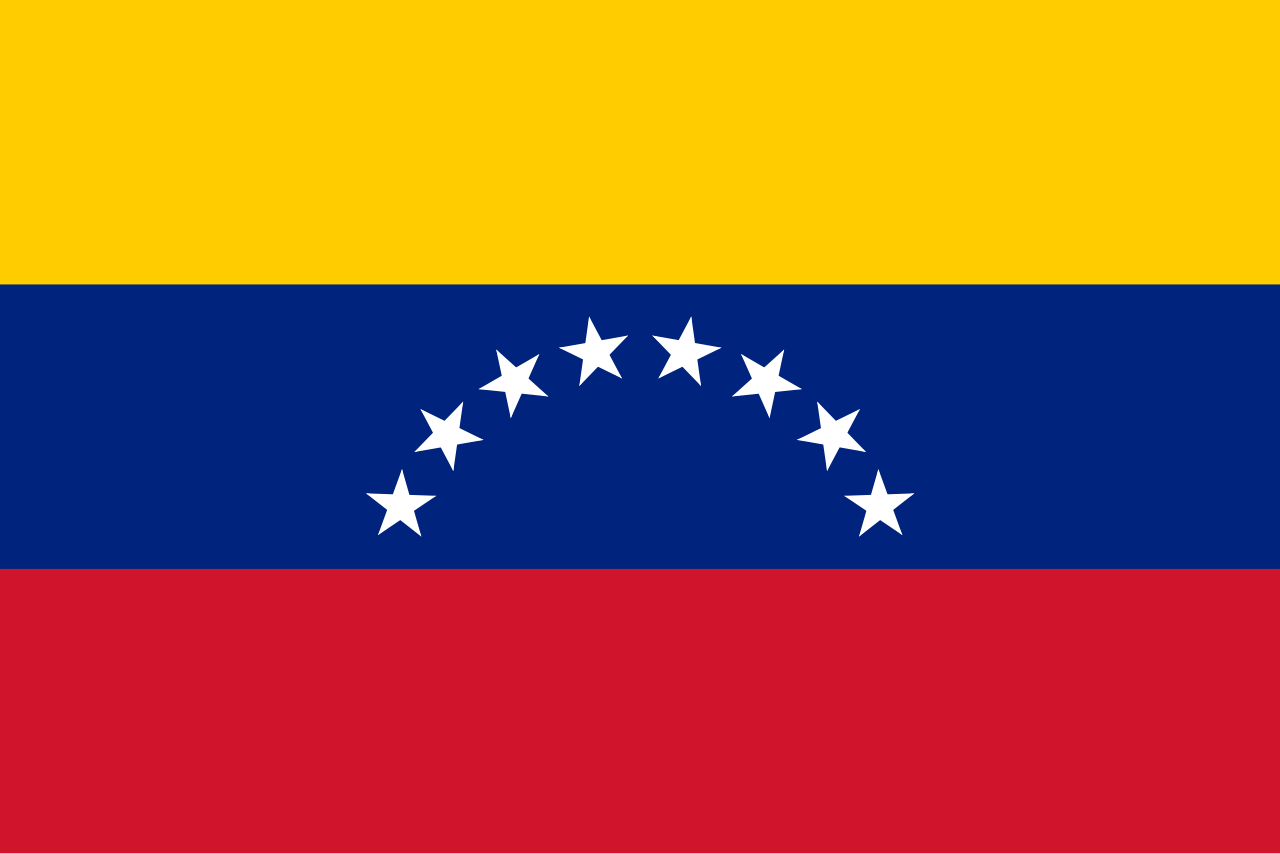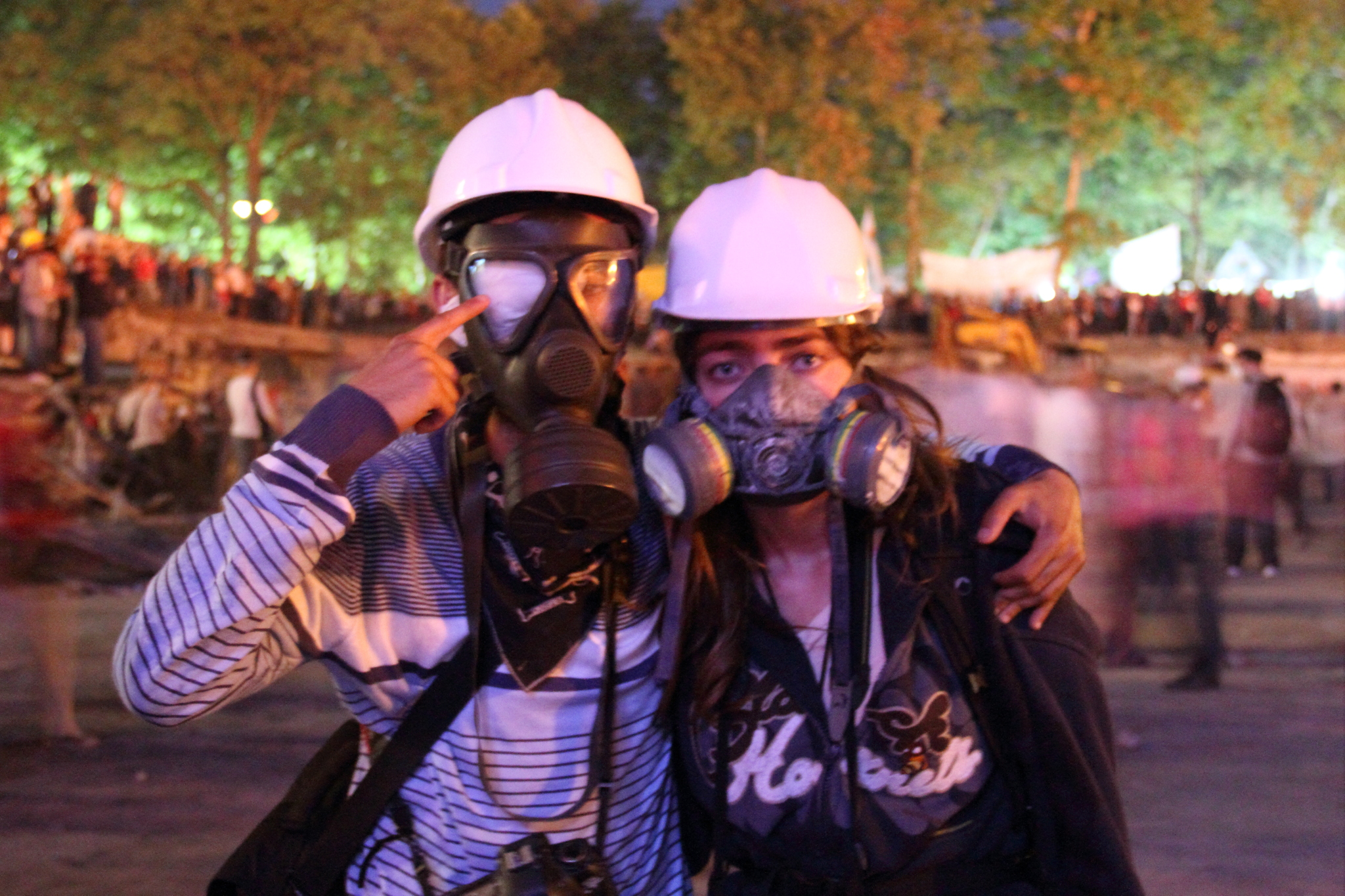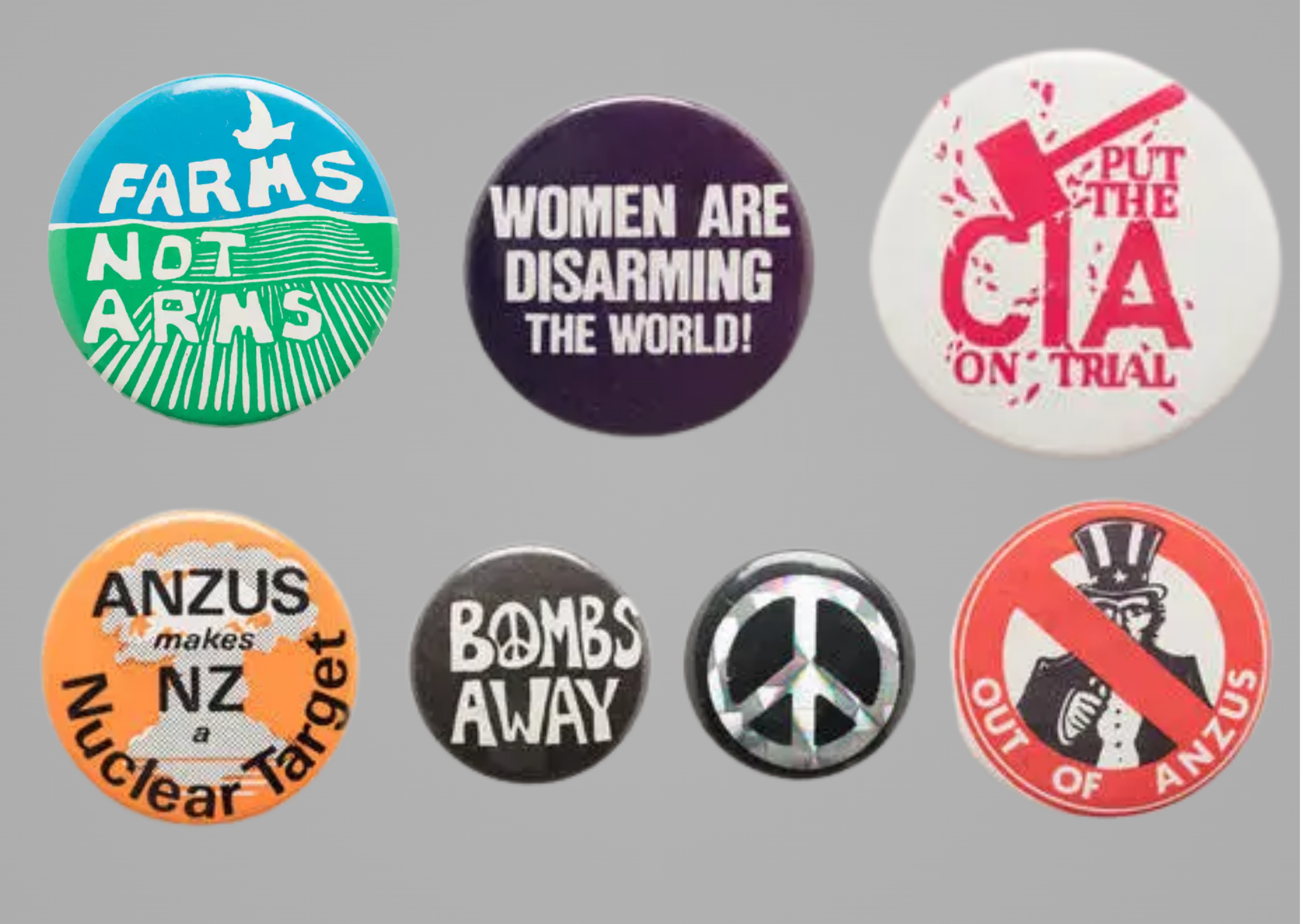The following was presented as a talk at the 2025 International Socialist Organisation hui-ā-tau annual conference. A recorded version is available here: https://youtu.be/bN40VEYvsOk
Introduction
Right now, in the middle of 2025, you’d be forgiven for feeling like the world has gone full-circle back to the 1930s. In a depressed global economy, fascists everywhere seem to be fanning the flames of national pride and stoking fears of various “others” who are somehow both a thing to be mocked and an existential threat. I’m not going to even come close to discussing every single country on this little planet of ours. This talk is, rather, an attempt to touch on just some examples of the Far Right political threads globally, aiming to put us in a good place to then open the floor to discussion.
First, let’s quickly cover some terminology. I’m using the term “Right” in a political sense to mean a commitment to maintaining capitalism, which is the system of resource accumulation and thus hierarchical division of society into those who hoard resources from others and those who produce resources for others. The “haves” and the “have nots”. The bourgeoisie and the proletariat. The capitalist class and the working class. Some have a more extreme commitment to maintaining this system, and we might call these people “Far Right”. That term encompasses a broad range of people including those with a strong economic and political theoretical knowledge who are intentionally leading( and often misleading) the general public; through to those who misinterpret the source of their disaffection and choose to become militant against public health measures, against “woke” ideologies such as equal Rights for women, or against immigrants who are often fleeing much harsher conditions elsewhere.
Those who are conservative want to maintain the status quo, which means supporting capitalism. Some conservative and Far Right leaders use a populist approach, appealing to working class disaffection to gain support – essentially meaning those supporters end up working against their own class interests. Reform means changing the current system bit by bit into something more palatable. While we welcome positive reforms such as an increase in the minimum wage, we are certain that by definition this system of capitalism cannot ever be sufficiently reformed to be fair for everyone. Therefore, we support revolution, meaning moving forward to a new system of egalitarianism and justice. Conversely, the greatest extreme Rightward is fascism – a brutal combination of authoritarian rule, scapegoating, militant mobilisation in defense of Capital, and destruction of leftist organising and resistance. Contrary to whatever nonsense internet horseshoe theories might claim, revolutionary socialism and fascism are diametrically opposed: they are opposite ends of a spectrum from egalitarian welfare on the social Left to exploitative hierarchy on the Far Right.
Sometimes people attempt to describe particular aspects of fascism, or groups active within fascism. So you’ll sometimes hear terms such as “eco-fascist”, “crypto-fascist”, or “Christo-fascist” to describe Far Right actors who want to depopulate, who organise online, or who also adhere to selected religious ideas. Sometimes new terms are invented which are unhelpful, distracting, and incorrect. So, for example, we’re not moving into an age of so-called “techno-feudalism”; we most certainly remain under capitalism, and the Far Right are capitalism’s staunch defenders. Before we move on, it’s also important to note however that this single spectrum of economic organisation does not pretend to describe all of the ways humans relate to one another. This Left-Right spectrum is useful for a lot of analysis of present-day politics, but it doesn’t describe all present-day political situations and it certainly doesn’t describe a lot of pre-capitalist history. Bear in mind that people can still be crappy without being Far Right.
(Some of) the problems we face:
On a national scale
Germany
Germany’s Alternative für Deutschland (Alternative for Germany, AfD) was founded in 2013 on an anti- European Union platform, incorporating xenophobia and Islamaophobia. AfD has rapidly become a serious Far Right political threat: gaining 12.6 percent of the vote in 2017 to holding 24 percent of seats in the Bundestag federal parliament since the February 2025 elections. This means AfD is a mere 2 percent of parliamentary seats behind the leading party, Chancellor Friedrich Merz’s centre-Right Christlich Demokratische Union Deutschlands (Christian Democratic Union). Alternative für Deutschland advocates ethnic nationalism, a return to blood-based citizenship and the deportation of immigrants, an idealised white nuclear family, and the dismissal of university professors for “leftist, woke gender ideology” – all reminiscent of Germany nine decades past.
According to European television station ARTE, Germany has the largest number of violent Far Right activists in Europe. There are only three registered political parties currently recognized by Germany’s Interior Ministry as Right-wing extremists: the Nationaldemokratische Partei Deutschlands (National Democratic Party of Germany), Die Rechte (The Right), and Der Dritte Weg (The Third Way). But there are many more street movements such as Unitas Germanica (German Unity), Albstadt, Pforzheim Revolte, as well as party youth wings. Disrupting LGBTQI+ Pride celebrations and rallying in the street against immigrants, these groups also use social media platforms to effectively spread their messages. New and well-established street groups have been organising together, and the groups appear to be growing in size, number, and threat.
The November 2024 arrest of members of neo-Nazi militant group Saxony Separatists (SS) casts more light on the threat these groups pose. Saxony Separatists’ members had been training themselves in urban warfare, intending to violently overthrow the German government. Three of the arrested SS members were linked to the now mainstream parliamentary party Alternative für Deutschland.
France
France’s Front National (National Front) was formed in the 1970s by Jean-Marie Le Pen. Since 2011, it has been fronted by his daughter Marine Le Pen whose express aim is the “de-demonisation of the National Front”. This includes a re-brand to the more mainstream-palatable name Rassemblement National (National Rally) in 2018. Nonetheless, the party’s Far Right politics are still very clear. In 2018, former Trump advisor Steve Bannon addressed the party convention, receiving a standing ovation to the words: “Let them call you racist, let them call you xenophobes, let them call you nativists. Wear it like a badge of honour. Because every day we get stronger and they get weaker. [..] God Bless America. And vive la France.”
International Socialist Organisation Aotearoa member Martin Gregory has written in detail about the snap French parliamentary elections which took place in June and July 2024, describing “the hastily-formed left coalition: Nouveau Front Populaire (New Popular Front), consisting of Jean-Luc Mélenchon’s La France Insoumise (LFI), the Socialist Party, the Communist Party, Greens and other lefts, including the Nouveau Parti Anticapitaliste – L’Anticapitaliste (NPA-A)”. This left coalition won the most seats but not an absolute majority. Despite the success of the coalition bloc, Rassemblement National is the single party which received the most votes in the Assemblée Nationale (National Assembly), making it a continued significant threat into the future. Marine Le Pen says ominously: “The tide is coming in. It didn’t swell enough this time, but it keeps growing, and thus our victory has only been delayed”.
ARTE TV reports France has almost 3,000 violent Right wing extremists, and that France accounts for almost half of Far Right terrorist acts committed or intercepted within Europe. These street forces are most visibly represented by the Groupe Union Défense (Union Defence Group) who rally behind an ideology of “revolutionary nationalism”. This is the same ideology that led to the formation of the Front National – regret for loss of empire, and rejection of socialist ideas – and street forces such as the Groupe Union Défense maintain close links with Rassemblement National.
Israel
From its beginnings, Zionism has been a colonial and genocidal concept supported by imperial superpowers. I struggle to conceive of a version of Israel that could be anything but Far Right, but even so there is a spectrum amongst Israelis and their supporters – a spectrum on which current Prime Minister Benjamin Netanyahu and many others are pushing rightward as much as possible. Minister of National Security Itamar Ben-Gvir participated in the 2025 celebration of the 1967 annexation of East Jerusalem – a day of Israeli street marches, violence against Palestinians, storming of the United Nations Relief and Works Agency (UNRWA) headquarters, all while the crowds chanted “Death to Arabs”. Prime Minister Netanyahu’s statement was supportive: “We will keep Jerusalem united, whole, and under Israeli sovereignty. This is of course connected to the current war: the war of rebirth.”
It would be hard at this point to be unaware of the so-called “war” to which Netanyahu refers: in what has been described as the world’s first live-streamed genocide, Israel continues to rain bullets, shells, and bombs on Palestinians in Gaza while carrying out a simultaneous campaign of terror, kidnap, and torture. As of late May 2025, Al Jazeera reports 62,614 Palestinians killed since October 7, 2023. It’s highly likely those figures will greatly increase as bodies are located beneath rubble, as people die from injuries and disease and malnutrition, and – unless there is a dramatic change of course – the genocide continues unabated. But the so-called “war” isn’t limited just to genocide in Gaza. Israeli settlers, with Israeli military support, harass and threaten and kill Palestinians in the West Bank, persistently expanding settlements and claiming land and resources. Palestinians continue to live under apartheid and occupation, even as Israel engages in conflict further afield with Lebanon, Syria, Iraq, Yemen, and Iran.
Argentina
In Argentina, former television angry rant personality Javier Milei has held the presidential seat since December 2023. Rather than having a cohered base of his own, the election of Milei is considered to have been more of a vote against the pseudo-leftist norm. Nonetheless, he has proceeded to implement a range of austerity, anti-labour, and privatisation measures. Milei’s La Libertad Avanza (Freedom Advances) party has also set about securing power in local elections, winning local control of Argentina’s capital Buenos Aires.
Milei is a paragon of libertarianism (or, as he calls it, anarcho-capitalism). Eurasia Business News, for example, fawns over Milei having eliminated Argentina’s fiscal deficit. All this required, according to that publication, was “disruptive policy” such as: eliminating the Ministries of Culture, Health, Labor, and Social Development; austerity measures including eliminating subsidies for energy, and transport, which has caused severe economic hardship and increased poverty; the privatisation of state-owned firms; and anti-labour legislation.
Aotearoa New Zealand
We have a number of Far Right threads of our own to pull at here in Aotearoa New Zealand. For example, the Christchurch mosque mass murderer of 2019 was motivated by the Far Right Great Replacement conspiracy theory, which holds that the “White Race” is being “diluted” or “out-bred” by non-White immigrants. This is an extreme confluence of nationalism, racism, and xenophobia, and is a line of thinking which as we saw has murderous consequences. These ideas aren’t unique, and are in fact maintained in mainstream consciousness by more organised actors here in Aotearoa.
The ACT party – generally going under the acronym for their full name which is the Association of Consumers and Taxpayers – has been actively trying to shift New Zealand politics further Rightward since its inception. Although ACT uses libertarian rhetoric, the party nonetheless displays an authoritarian approach, pushing forward its policies despite overwhelming opposition. ACT staunchly advocates for the extremes of capitalism and social competition, attempting to erase all threats such as the Treaty of Waitangi Principles.
Compared with ACT, New Zealand First is more explicit in its advocacy of nationalism, conservatism, racism, and xenophobia. The party recently announced the so-called Fair Access to Bathrooms Bill, which seeks to emulate the USA’s attacks on transgender peoples’ use of toilets as part of a divide-and-rule strategy. In 2023, the party campaigned on policies which included: “New Zealand means New Zealand and not, ‘Aotearoa New Zealand’”; intending “to make English the primary official language of New Zealand” (presumably erasing the other two official languages: te Reo Māori and New Zealand Sign Language); to “withdraw from the UN Declaration on the Rights of Indigenous Peoples (UNDRIP)”; opposing hate speech legislation; enforcing “biological” requirements for gendered sport; and ending vaccine mandates.
There are more extreme Right parties, or at least there are other Far Right parties which are less accomplished at obfuscating their anti-social intentions, but those parties failed to gain any seats in the 2023 general election. Such parties include The New Conservatives, New Nation Party, NewZeal, Democracy NZ, Vision New Zealand, and Freedoms New Zealand. Despite their electoral failures, behind these parties are organised street movements like Brian Tamaki’s Destiny Church which is capable of occasionally mobilising thousands of militants against queer rights, abortion rights, or public health measures. At present, explicitly fascist groups such as the National Front and Action Zealandia appear to have crawled back into their caves to sleep off successive defeats from local anti-fascist organisers.
On an international scale:
The European Union
ISO’s Martin Gregory has detailed the European Union parliamentary elections in June 2024, where the Far Right made further inroads. As Martin wrote:
In Germany AfD (Alternative for Germany) came second with 15.9 percent of votes. In Austria FPÖ (Freedom Party of Austria) came first with 25.4 percent. In the Netherlands PVV (Party for Freedom) came second with 17 percent. In Italy Brothers for Italy came first with 29 percent. In Spain Vox came third with 9.6 percent. The most disquieting results were in France where Rassemblement National (National Rally, formerly National Front), came first with 31.4 percent of votes, which was more than twice that of President Macron’s Ensemble group in second place.
There are sufficient shared goals for these Far Right groups’ presence to be felt, such as decreasing immigration and curbing efforts to address climate change. The result is that with around a quarter of the European Union parliament held by the Far Right, they don’t presently have enough for a deciding vote but are certainly established as a real political force (threat) and will shift the tone of European political discourse Rightward.
The Atlas Network
Confusingly, there is a European Union organisation of anti-terrorist “special intervention units”, set up in response to the September 11 2001 attack on the World Trade Centre, with the name “ATLAS network”. This law enforcement agency which no doubt is itself full of red flags, is at least to my knowledge “just” an organisation maintaining the current capitalist hegemony and “Western” dominance. But we should talk about the other Atlas Network: the one which explicitly aims to drag the whole world further to the Right.
Formerly known as the Atlas Economic Research Foundation, the Atlas Network provides support, training, funds, ideas, and connections for think tanks and other political groups around the world. Their stated vision is: “a free, prosperous, and peaceful world where limited governments defend the rule of law, private property, and free markets”. Moreover: “our goal is to persuade people of all backgrounds to value classical liberal principles and to consider policy reforms related to these principles”. The Atlas Network claims to actively partner with over 500 organizations in over 100 countries.
The Atlas Network’s website names only a few of these “partners”: groups such as African Students for Liberty in Kenya; Centros De Estudios Para El Desarrollo in Uruguay; Epicenter in Belgium; Foundation for Individual Rights and Expression in the USA; and so on – so it’s hard to accurately gauge the impact of the Atlas Network. What we do know is that here in Aotearoa, ACT Party leader David Seymour has worked for several organisations which were members of Atlas, and ACT has a revolving door of staffers with the New Zealand Taxpayers’ Union, itself an Atlas member and Right wing think tank. Examples of recent ACT Far Right policies include: the Principles of the Treaty of Waitangi Bill, which sought to undermine indigenous sovereignty and undermine efforts to achieve justice for colonialism’s impact on Māori; and now the Regulatory Standards Bill which seeks to entrench property rights and libertarian economic calculations into all future legislation. At the very least it seems certain the Atlas Network’s ideology is strongly present in these legislative attacks.
Why?
Forgotten lessons of the past
Socialists have been organising against capitalism for a long time now, and it’s no surprise that capitalism fights back when threatened. While our ideas are still far from universally accepted, a much larger base exists of people who believe in a compromise between the ideas of the Right and the Left. On the surface, this can seem reasonable: upholding ideas of universal tolerance, democracy, and free speech. Historically, though, we know that the Far Right has always appropriated those ideas for their own ultimately authoritarian goals, and that there must be limits to our tolerance of hateful ideologies. And as younger generations become increasingly distanced from the lessons of 1930s and 40s Europe, fascism seems to some to just be a historical irrelevance rather than a very present contemporary threat.
Rejection of refugees
Many Far Right actors in Europe have built their political rhetoric on a response to an influx of refugees and migrants over the past decade. Famously under former chancellor Angela Merkel, the ruling Christlich Demokratische Union Deutschlands (Christian Democratic Union) welcomed over a million refugees on humanitarian grounds. European Far Right actors, particular in Germany, have claimed this has put an unnecessary economic strain on national resources. The “Great Replacement” theory is evoked to stoke hatred rather than solidarity for the refugees’ plight, and thus refugees have become a convenient “other” to scapegoat and to mobilise against.
Capitalism
Capitalism is a system of exploitation of the majority for the accumulation of the few. Capitalists must endlessly grow their wealth or be consumed by their competitors. So we, the workers of the world, experience not just the majority of the fruits of our labour being taken from us but also the thumbscrews of that exploitation ever tightening. So we fight back against the capitalists, and the capitalists in turn escalate their war against us. This is class war.
We build infrastructure to support our fight. We build political organisations such as the ISO here in Aotearoa. We build unions. We build campaign groups and we create collective community support structures. The capitalist class sets out to destroy our infrastructure, to set us back, to subjugate us once more, through the tool of fascism: disbanding union structures, threatening socialists and others who dare to speak up and organise, and ensuring the continued rule of business. Part of the explanation for the rise of the Far Right globally is that it is simply a part of the back and forth of the class war.
Another important part, though, is recognition of the extent to which people sometimes act against their class interests. Sometimes this can be because a leader cleverly highlights a small personal benefit and obfuscates the bigger class picture – such as promises of tax breaks for all, or promises of economic prosperity if only those immigrants would go away. Sometimes this can be because a leader successfully taps into frustrations with a status quo. Even for the more privileged among the working class, we are often alienated from the product of our labour, we are always paid less than the value we produce, we struggle to make ends meet, and we are always only one small misstep or misfortune away from falling into the capitalist meat-grinder of joblessness, homelessness, and ill health. Recognising this, and looking for some alternative, people may sometimes be swayed toward Far Right ideas such as “Make New Zealand First Again”.
Responses:
Diplomatic power
On 19 May 2025, New Zealand’s Foreign Affairs Minister Winston Peters co-signed a statement calling on Israel to “allow a full resumption of aid into Gaza immediately, and enable the UN and humanitarian organisations to work independently and impartially to save lives, reduce suffering and maintain dignity”. This statement has also been signed by Australia, Belgium, Canada, Denmark, Estonia, Finland, France, Germany, Iceland, Ireland, Italy, Japan, Latvia, Lithuania, Luxembourg, the Netherlands, Norway, Portugal, Slovenia, Spain, Sweden, the UK, and various European Union offices. It remains to be seen the extent to which these countries are willing to act to back up this statement, but nonetheless this represents a degree of mounting diplomatic pressure within the Capitalist sphere of influence against at least some of Israel’s actions. More inspiring and effective pressure might look similar to Colombia’s actions to expel the Israeli ambassador and to newly establish an ambassador to Palestine.
People power
In Argentina, major union confederations have successfully called two general strikes which have brought transportation and economic activity to a standstill. In Germany, hundreds of thousands have repeatedly rallied against the AfD and other Far Right forces. Student encampments and mass rallies in support of Palestine have rocked the world, challenging every institution and government supporting the genocidal Israeli state. The Hīkoi mō te Tiriti through Te Ika-a-Māui in 2024 saw a hundred thousand Māori and tangata tiriti mobilise against the ACT Party’s racist legislation here in Aotearoa. The earlier example of governments condemning Israel comes about not from any particular anomaly of kindness amongst the ruling class, but because of successful pressure from grassroots protest. While this talk has aimed to summarise the threat of Far Right elements globally, I urge you not to step away from this with any sort of impression that those elements go unchallenged or that those elements have any sort of assurance of victory in the face of our collective strength.
Conclusion
There are so many parts of the world I’ve not touched on. The United States of America has been discussed ad infinitum, but we’ve also skipped over struggles in The Philippines and El Salvador, upcoming elections in Colombia and Chile in which the Far Right are a serious threat, and Far Right street mobilisations in the United Kingdom and in Australia. What we have covered, however, are concerning increases of influence of Far Right forces around the world. Those Far Right forces take different forms: sometimes political parties attacking the working class or enacting extremist free-market policies; sometimes individuals stoking ultra-nationalist sentiment to rally political power; and sometimes street mobilisations of hundreds or thousands willing to inflict physical violence on those deemed “outsiders”. All of these forms ultimately defend capitalism from the threat that we, the working class, pose. Our task is to not back down but to continue steadfast – to build our numbers and our capability in serious political organisations so that ultimately we can overthrow this system of exploitation. This is class war, and we very literally can’t afford to lose.
References
AJLabs. (n.d.). Israel-Gaza war in maps and charts: Live tracker. Retrieved May 29, 2025, from https://www.aljazeera.com/news/longform/2023/10/9/israel-hamas-war-in-maps-and-charts-live-tracker
Al Bawaba. (2025, May 27). Colombia appoints its first ambassador to Palestine. https://www.albawaba.com/news/colombia-appoints-its-first-ambassador-1605638
Al Jazeera English. (2025, May 28). Far-Right Israelis storm Al-Aqsa, UNRWA compounds amid Jerusalem Day march. https://www.youtube.com/watch?v=LlxQlGHDgCs
Allison, S. (2023, November 16). Imperialism, capitalism, colonialism: The Israeli state and occupied Palestine. https://iso.org.nz/2023/11/16/imperialism-capitalism-colonialism-the-israeli-state-and-occupied-palestine/
Allison, S., & Gregory, M. (2023, November 21). The far Right in the 2023 general election. https://iso.org.nz/2023/11/21/the-far-Right-in-the-2023-general-election/
ARTE.tv Documentary. (2024, August 30). White Power: Inside Europe’s Far-Right Movement. https://www.youtube.com/watch?v=4iENhZG6p08
Atlas Network. (n.d.). Retrieved May 29, 2025, from https://www.atlasnetwork.org
Baker, J. (Director). (2025). Louis Theroux: The Settlers [Film].
Bambery, C. (1992). Killing the Nazi menace – how to stop the fascists. Socialist Workers Party.
BBC. (2019, November 13). Europe and Right-wing nationalism: A country-by-country guide. https://www.bbc.com/news/world-europe-36130006
Bradbury, M. (2024, February 10). MEDIAWATCH: Mihi Forbes vs David Seymour over Atlas Network connections. https://thedailyblog.co.nz/2024/02/10/mediawatch-mihi-forbes-vs-david-seymour-over-atlas-network-connections/
Debre, I. (2025, May 19). In win for far-Right President Milei, Argentines deal a blow to centrists in local elections. https://apnews.com/article/argentina-election-milei-farRight-macri-b4dd011e0ca43e6e3a6ffc9e37b12608
de Jonge, L., & Frankenberger, R. (2025, February 24). What is the AfD? Germany’s far-Right party, explained. https://theconversation.com/what-is-the-afd-germanys-far-Right-party-explained-250218
Deutscher Bundestag. (n.d.). Distribution of seats in the German Bundestag’s 21st electoral term. Retrieved June 26, 2025, from https://www.bundestag.de/en/parliament/plenary/distributionofseats
Drummond, J. (2024, February 8). ACT leader David Seymour lies about his ties to the Atlas Network. https://badnewsletter.com/david-seymour-lies-about-the-atlas-network
El-Fekki, A. (2025, May 21). Map Shows Countries Condemning Israel Over Gaza Offensive. https://www.newsweek.com/map-shows-countries-condemning-israel-over-gaza-offensive-2075186
Eurasia Business News. (2024, December 12). Argentina’s Milei eliminates deficit, a historic milestone. https://eurasiabusinessnews.com/2024/12/12/argentinas-milei-eliminates-deficit-a-historic-milestone/
European Union. (2008, December 23). Seminar of the ATLAS network of European special intervention units. https://web.archive.org/web/20111008002617/http://www.eu2008.fr/PFUE/lang/en/accueil/PFUE-10_2008/PFUE-07.10.2008/seminaire_du_reseau_atlas_des_forces_d_intervention_europeennes.html
Fabian, E. (2023, December 26). Gallant says Israel being attacked from seven sides, has hit back at six. https://www.timesofisrael.com/liveblog_entry/gallant-says-israel-fighting-multi-front-war-has-responded-to-threats-on-six-fronts/
Foster, T. (2024, December 19). Europe’s leaders boost far Right by scapegoating Syrian refugees. https://socialistworker.co.uk/international/syrian-refugees-far-Right/
Gregory, M. (2024, August 22). Reflections on the 2024 French Elections. https://iso.org.nz/2024/08/22/reflections-on-the-2024-french-elections/
Gregory, M. (2024, November 14). The United Front: A Contested Policy. https://iso.org.nz/2024/11/14/the-united-front-a-contested-policy/
Halnon, E. (n.d.). The Marvels of Comics. Retrieved May 28, 2025, from https://news.uoregon.edu/marvel
Infante, C. J. C. (n.d.). Is a far-Right populist wave breaking in South America? Retrieved May 30, 2025, from https://theloop.ecpr.eu/is-a-far-Right-populist-wave-breaking-in-south-america/
Joyner, E. (2024, June 12). Europe’s far Right won ground in the EU elections. Can they unite to wield power? https://apnews.com/article/european-parliament-election-far-Right-b9339cf1a7d2067bf6fa1941c166936d
Khatib, R., McKee, M., & Yusuf, S. (2024, July 20). Counting the dead in Gaza: difficult but essential. The Lancet, 404(10449), 237-238. https://www.thelancet.com/journals/lancet/article/PIIS0140-6736(24)01169-3/fulltext
McLachlan, G. (2025, April 26). Freedom fighters or freedom frauds? The Act Party’s local government hypocrisy. https://www.klaut.media/single-post/freedom-fighters-or-freedom-frauds-the-act-party-s-local-government-hypocrisy
McNicoll, T. (2018, March 11). Wear ‘racist’ like a badge of honour, Bannon tells French far-Right summit. https://www.france24.com/en/20180311-france-usa-bannon-le-pen-national-front-racist-badge-honour-populist-pep-talk-lille-trump
New Zealand First. (n.d.). New Zealand First. Retrieved May 29, 2025, from https://www.nzfirst.nz/
Radio New Zealand. (2025, May 20). NZ joins call for Israel to allow full resumption of aid to Gaza. https://www.rnz.co.nz/news/political/561538/nz-joins-call-for-israel-to-allow-full-resumption-of-aid-to-gaza
Rooney, E. (2025, February 21). The Resurgence of the Far-Right in Germany’s Politics and Streets. https://www.moderninsurgent.org/news-analysis/the-resurgence-of-the-far-Right-in-germany%E2%80%99s-politics-and-streets
Sullivan, T. (2024, June 21). Another general strike in Argentina challenges Milei. https://redflag.org.au/article/another-general-strike-in-argentina-challenges-milei
Taylor, D. (2024, July 8). Victory for the left in France. https://redflag.org.au/article/victory-for-the-left-in-france
Yoon, S. (2024, December 3). Hīkoi as a protest of defiance, unity and hope. https://iso.org.nz/2024/12/03/hikoi-as-a-protest-of-defiance-unity-and-hope/

